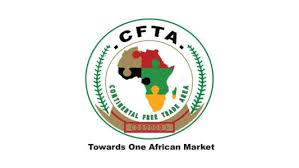
Report Lists Factors To Determine AfCFTA’s Success
The success of the African Continental Free Trade Area (AfCFTA) agreement will depend on the willingness of member- countries to forfeit their autonomy and submit to a more centralised rule, a report has stated.
For instance, it pointed out that trade concession agreements would have to be established; reduction and eventual elimination of trade tariffs would need to be discussed while rules of origin would also be negotiated.
The Financial Derivatives Company Limited, stated this in its latest economic report obtained at the weekend.
The AfCFTA is a regional agreement that creates a free trade area among 55 African countries. Of these, 54 members have signed, only Eritrea is yet to endorse it. The free trade area is a customs union, which would allow for movement of physical goods without tariffs from 2022.
It would be similar to the European Union (EU), which has 28 member countries and a central monetary authority, the European Central Bank (ECB).
The ECB is the central bank for 19 member countries of the EU that use a common currency called the Euro. The EU was founded when the Maastricht treaty was signed in 1992.
“It may take even longer for a continent as fragmented as Africa who has most if not all its countries as emerging or frontier markets,” the FDC report added.
It listed some of the benefits Nigeria stands to enjoy by joining the trade area to include, but are not limited to wider market; localisation and economies of scale; job creation, as a larger market would require increased production to meet growing demand.
On the other hand, it pointed out that the main threat to Nigeria signing the agreement was loss of government revenue through the reduction and eventual elimination of tariffs.
“Another risk is that the country may be turned into a dumping ground for sub-standard goods and increased competition, which would negatively affect the domestic industry,” it stated.
The goal of AfCFTA is to create a single integrated market, which would increase trade across the continent and lead to free movement of goods and services. “With a population size of 1.2 billion and a combined GDP of $2.6trillion, the trade agreement will cover the largest market in the world.
“Africa is a continent rich with diverse raw materials ranging from minerals to agriculture.
“The trade agreement would help change the continent’s narrative from being just a source of raw materials to a destination point for high quality finished goods and services,” the report added.
It noted the talks of a likely adoption of a single currency in the last phase of the integration (similar to the euro), which would involve member countries forfeiting their individual currencies.
This would mean one monetary authority in the region.
Continuing, the FDC noted that typically, in a trade arrangement or any arrangement, the bigger party usually benefits.
However, it stated that AfCFTA had been viewed as a parasitic relationship.
The federal government was initially afraid of a parasitic relationship and hesitated before signing the agreement. Presently, smuggled goods can be found everywhere in Nigeria.
“While AfCFTA would not stop smuggling (one of the reasons being Nigeria’s very porous borders), it will create more competition which is good for the industries and the economy as a whole.
“Nigeria’s major trading partners globally are China (accounting for 20% of Nigeria’s imports) and India (accounting for 32% of Nigeria’s exports).
“The US is also a major trading partner, accounting for 8.6 per cent of imports and 8% of exports). South Africa is the only African country among the top five key trading partners of Nigeria, accounting for 9.5 per cent of Nigeria’s export intensity index,” it stated.
A further breakdown showed that Africa accounted for 5.08 per cent of total agricultural goods traded, 6.2 per cent of raw materials, 35.79 per cent of solid minerals and 29.8 per cent of manufactured goods.
